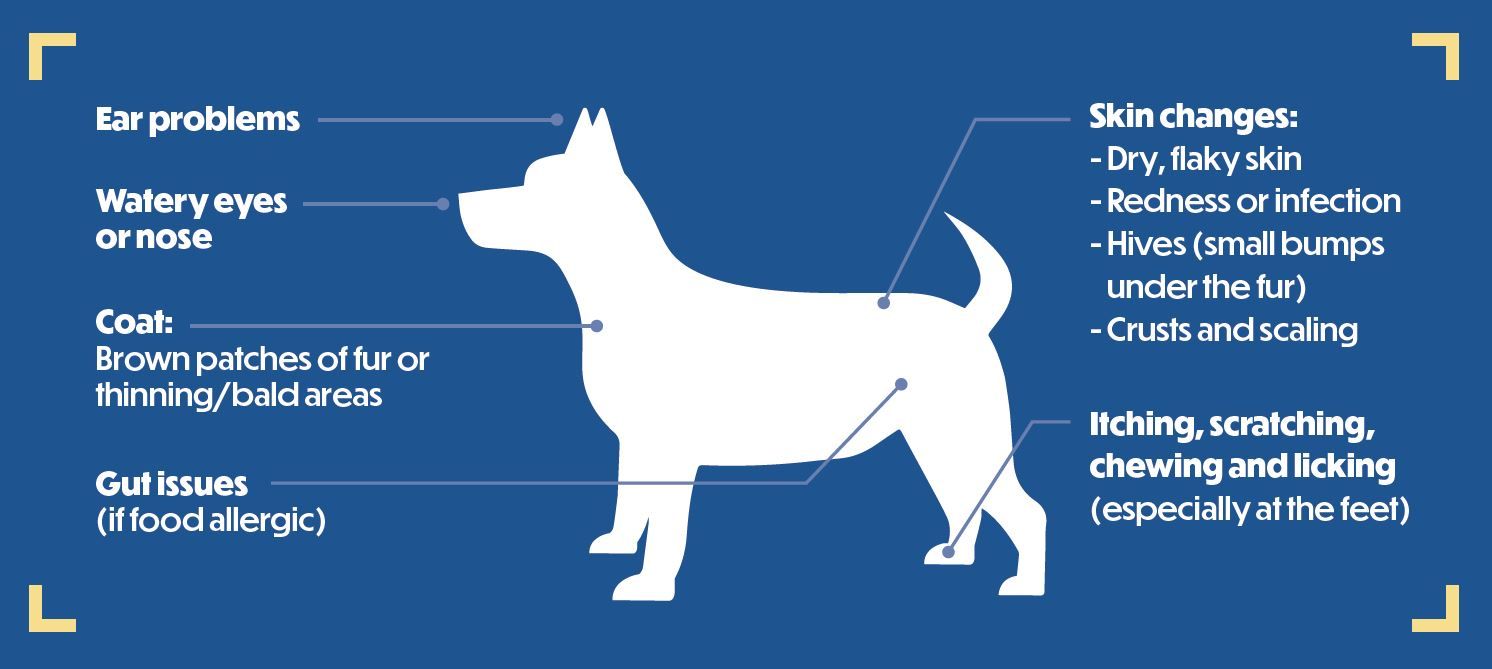Allergies in Dogs and Cats

What is an allergy?
An allergy is when the body’s immune system reacts excessively to something which is normally harmless; in the case of skin allergies the reaction presents on the skin.
Did you know that skin allergies do not only occur following contact of an allergen with the skin, they can also be caused are linked to damaged or disrupted skin, which may contribute to external particles reaching the deeper layers of the skin and triggering an abnormal reaction.
What could your pet be allergic to?
Skin allergies in dogs and cats can be split into 3 main categories:
 Fleas – pets become extremely itchy after just one flea bite
Fleas – pets become extremely itchy after just one flea bite
 Environmental factors such as pollen, dust and dust mites
Environmental factors such as pollen, dust and dust mites
![]() Dietary allergies such as meat proteins
Dietary allergies such as meat proteins
Signs that your pet may have an allergy

So they are itching, but is it an allergy?
Allergies are diagnosed by a process of elimination. Your vet needs to work through potential causes of itching before diagnosing an allergy. First they may wish to exclude the possibility of an infection, e.g. fleas, lice, mites, bacterial, fungal or yeast. This may involve taking coat brushings, hair samples, tape strip samples, skin scrapes or swabs, blood tests or even specific treatment trials for certain parasites. Once infectious causes have been ruled out, diagnosis of an allergy becomes more likely.
Rigorous flea treatment, including the house and all in-contact pets, is essential to eliminate fleas and therefore signs of a flea allergy; this should be carried out under veterinary guidance.
Should the itching persist, the next step is likely to be a diet trial. Owners are often surprised to learn that animals tend to develop allergies to foods or ingredients which they have been on for some time, as opposed to something they have recently been exposed to for the first time. Your vet should be able to advise a suitable diet trial. A few factors to be aware of are that the protein source of the trial diet needs to be one which your pet has not previously consumed; and the trial must be carried out for at least 6 weeks, during which no other treats/ flavoured medication/ toothpastes etc. can be given to your pet. If they remain itchy beyond this point then it is likely that they may be allergic to something in the environment. Environmental allergies can be seasonal if they are due to specific pollens or grasses, whereas allergies to other environmental factors such as dust mites can be problematic all year round.
.png)
Managing skin allergies
Skin allergies are not generally reversible, and once diagnosed, they typically require lifelong management, which may vary in form throughout the year. Infections need to be treated, rigorous flea management should be implemented and where possible allergens should be avoided. Animals will often require specific medication to reduce their itch sensation; this will help to make them feel more comfortable and break the itch-scratch cycle. Finally, it is important to support the skin barrier, as this can be disrupted both by the allergy itself and the physical act of scratching.
What is the skin barrier?
As the body’s largest organ, the skin covers all other tissues and has important protective functions. It acts as a waterproof barrier to the outside world, acting both to keep external substances out and water locked in, essential for the body to remain hydrated. The outermost layer of skin (the epidermis), has a unique structure that ensures this barrier is tough and waterproof, whilst the deeper layer (the dermis) is responsible for maintaining the skins strength and hydration.
Skin Hydration
Healthy skin is essential for your pet’s wellbeing and allows them to enjoy a happy, healthy life.
Dry skin and rashes can benefit from moisturising support for both layers of the skin.

Speak to your vet about whether your pet could benefit from hydrating support for their skin.
.png)
